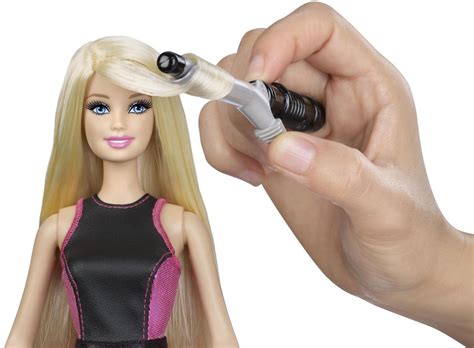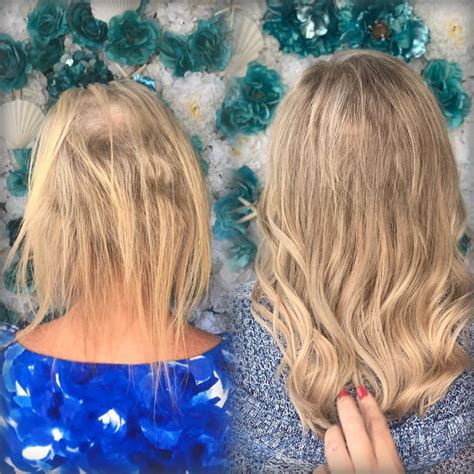Thin hair can be a constant frustration, but it doesn’t have to be. With the advent of modern hair extensions, you can effortlessly transform your limp strands into luxurious, voluminous tresses. This comprehensive guide will delve into the different types of hair extensions for thin hair, their benefits, and step-by-step instructions to help you achieve the hair of your dreams.

Understanding the Pain Points of Thin Hair
Thin hair presents several challenges that can lead to frustration and a lack of confidence:
- Limp and flat: Thin hair often lacks volume and body, making it appear lifeless and dull.
- Lack of styling options: The limited volume makes it difficult to achieve desired styles, such as buns, braids, or ponytails.
- Hair loss: Thin hair can be more susceptible to breakage and hair loss, exacerbating the problem.
Motivation: Unlocking the Potential of Hair Extensions
Hair extensions offer a transformative solution for thin hair by addressing the key pain points:
- Volume and thickness: Extensions add instant volume and thickness, creating the illusion of fuller, healthier hair.
- Styling versatility: With added volume, you can experiment with various hairstyles, from voluminous updos to chic braids.
- Confidence boost: Enhanced hair volume can significantly improve self-esteem and confidence.
Best Hair Extensions for Thin Hair
The vast array of hair extensions available can be overwhelming, but choosing the right type for thin hair is crucial. Here are the most suitable options:
1. Clip-In Extensions
- Benefits: Clip-in extensions are the most convenient option, allowing you to add volume and length whenever you need. They clip directly to your natural hair and can be easily removed at night.
2. Tape-In Extensions
- Benefits: Tape-in extensions offer a semi-permanent solution, lasting up to 6-8 weeks. They are applied using medical-grade tape that bonds to your natural hair. The flat profile creates a seamless blend.
3. Sew-In Extensions
- Benefits: Sew-in extensions are the most durable option, lasting up to 6 months. They are sewn onto cornrows or braids, providing the most natural appearance and exceptional longevity.
4. Fusion Extensions
- Benefits: Fusion extensions use a keratin bond to attach individual strands to your natural hair. They offer a natural and long-lasting result, lasting up to 4-5 months.
Table 1: Comparison of Hair Extension Types for Thin Hair
| Type | Volume | Duration | Maintenance |
|---|---|---|---|
| Clip-In | Instant | Temporary | Low |
| Tape-In | Seamless | 6-8 weeks | Moderate |
| Sew-In | Most natural | 6 months | High |
| Fusion | Individual strands | 4-5 months | High |
Effective Strategies for Thin Hair Extension Application
To ensure a successful hair extension application, embrace these strategies:
- Use natural colors: Match the extensions to your natural hair color or choose a slightly darker shade for a subtle highlight effect.
- Add length gradually: Start with shorter extensions and gradually increase the length over time to avoid overwhelming your natural hair.
- Avoid excessive heat: Limit the use of heat styling tools on your extensions and natural hair to prevent damage.
- Regular maintenance: Brush your extensions daily and wash them regularly to maintain their condition.
Step-by-Step Approach to Applying Hair Extensions
- Prepare your hair: Wash and blow-dry your hair to remove any products or oils.
- Section your hair: Divide your hair into small sections, starting from the back of your head.
- Apply the extensions: Depending on the type of extensions you choose, follow the specific application instructions (e.g., clip-in, tape-in, sew-in, fusion).
- Secure the extensions: Make sure the extensions are securely attached and blended with your natural hair.
- Style as desired: Once the extensions are applied, you can style your hair as usual, using your favorite products and tools.
Table 2: Cost of Hair Extensions for Thin Hair
| Type | Average Cost |
|---|---|
| Clip-In | $100-$500 |
| Tape-In | $300-$1,000 |
| Sew-In | $500-$1,500 |
| Fusion | $700-$2,000 |
Creative Applications of Hair Extensions
Beyond volume and length, hair extensions can also be used for creative applications:
- Color correction: Add highlights or lowlights to create dimension and depth in your hair.
- Ombré effect: Gradually transition from one hair color to another, creating a trendy and stylish look.
- Hair tinsel: Incorporate sparkling hair tinsel for a touch of glam and shine.
Table 3: Benefits of Hair Extensions for Thin Hair
| Benefit | Description |
|---|---|
| Increased volume | Creates the illusion of thicker, fuller hair. |
| Enhanced styling options | Allows for versatile hairstyles, including buns, braids, and ponytails. |
| Improved confidence | Boosts self-esteem and reduces hair-related anxiety. |
| Temporary or semi-permanent | Choose options that suit your lifestyle and preferences. |
| Low maintenance | Some extensions, such as clip-in, require minimal daily maintenance. |
Table 4: Potential Drawbacks of Hair Extensions
| Drawback | Description |
|---|---|
| Damage to natural hair | Improper application or removal can lead to breakage or hair loss. |
| Cost | Hair extensions can be expensive, especially the more permanent options. |
| Maintenance | Certain types of extensions require regular maintenance, such as blow-drying and brushing. |
| Limited lifespan | Hair extensions eventually need to be removed or replaced. |
| Not suitable for all hair types | Some extensions may not be appropriate for fine or damaged hair. |
Conclusion
Hair extensions for thin hair are a versatile and transformative tool that can help you achieve your dream hair. By understanding the different types, benefits, and applications of hair extensions, you can make an informed decision that meets your individual needs and desires. Remember to prioritize the health of your natural hair and consult with a professional stylist for personalized advice. Embrace the power of hair extensions, and unlock the confidence and beauty that comes with voluminous, luscious tresses.
